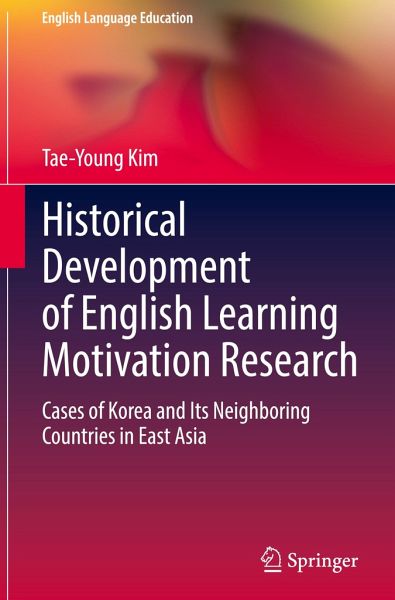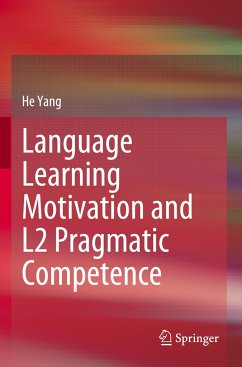
Historical Development of English Learning Motivation Research
Cases of Korea and Its Neighboring Countries in East Asia

PAYBACK Punkte
61 °P sammeln!
This book clarifies the fundamental difference between North America-based instrumental motivation and Korea (and East Asia)-specific competitive motivation by which the EFL learners' excessive competition to be admitted to famous universities and to be hired at a large-scale conglomerate is the main source of L2 motivation. It enables readers to understand that EFL-learning motivation reflects unique sociohistorical contexts grounded in a specific region or country. This book in turn necessitates the need to develop EFL motivation theory and research tradition which are firmly based on East A...
This book clarifies the fundamental difference between North America-based instrumental motivation and Korea (and East Asia)-specific competitive motivation by which the EFL learners' excessive competition to be admitted to famous universities and to be hired at a large-scale conglomerate is the main source of L2 motivation. It enables readers to understand that EFL-learning motivation reflects unique sociohistorical contexts grounded in a specific region or country. This book in turn necessitates the need to develop EFL motivation theory and research tradition which are firmly based on East Asian values and culture.












